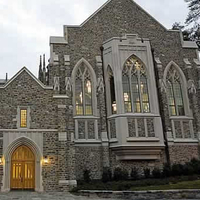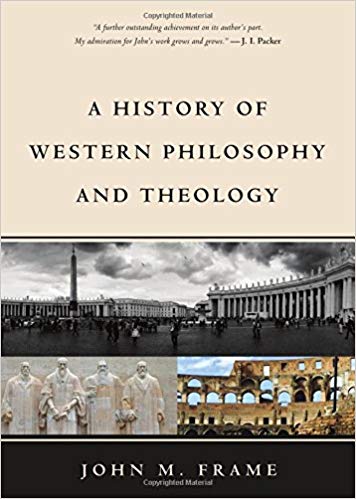Recommended Reading
From Amazon.com: "Christians should evaluate philosophy by biblical criteria. This will shed greater light on the developments in the history of philosophy and better prepare us for the intellectual challenges of our time. The fall of Adam brought intellectual as well as moral corruption on the human race, and the effects of the fall can be seen in the work of philosophers, most of whom try to understand the world autonomously through reasoning apart from God's revelation. Some philosophers have appealed to God's revelation, but their work has often been compromised with the wisdom of the world. Revelation should inform reason, and not the other way round. In the past, even Christian theology was corrupted by the movement toward intellectual autonomy, creating the tradition of liberalism, which has unhappily dominated academic theology down to the present day. But there is hope a new generation of Christian thinkers take God's Word seriously. Frame's unique new contribution augments that process."
If you purchase from one of our Amazon.com links, we receive a small commission that helps support this site and does not cost you any extra.
Divinity School vs. Seminary - What's the Difference?
If you're interested in seminary or divinity school, then you may wonder about the difference between the two or if there even is a difference. Traditionally, yes, there is a distinction between the two although it's not as important as you might think. Ultimately, you need to find a school that suits your needs, but there are some differences you should know about.
Understanding the Difference

The basic distinction between a div school and a seminary is that the former is a professional school part of a larger university and is analogous to other professional schools within the university. For example, Duke University has several professional schools that fall under the jurisdiction of the university - Duke Law School, Duke Med School, and, of course, Duke Div School. Many schools have similar arrangements - Harvard, Yale, Vanderbilt, and Emory.
Are Divinity Schools More "Academic"?
Another usual difference is that seminaries tend to have stronger ties to a particular denomination than do div schools. As such, you will often find students at seminaries who are preparing for traditional church ministry more so than at div schools although this difference doesn't always apply. Divinity schools are also seen by some as more "academic." It is true that they have the resources of a university from which to draw upon; however, many independent seminaries (including my own alma mater) rival any div school with the level and breadth of course offerings.
Exceptions to the "Rule"
There are, of course, exceptions to this broad distinction. For example, Baylor University has professional programs as part of its offerings, but their theological school is Truett Theological Seminary. However, part of Truett's mission is to specifically prepare students interested in Baptist ministries. While there are students from other denominations and with other interests present, the primary focus of Truett is to prepare students for Baptist ministry. As such, the naming of the school as a seminary is more appropriate, given its specific focus.
So Which Do You Choose?
So, at this point you may wonder which type of school would be the best fit for you. Personally, I don't think you should fret over whether you go to seminary or div school. What matters most is finding a school that is the best fit for you and your specific needs. For example, if you're preparing for ministry in the Presbyterian Church (USA), it might make your journey easier to attend a PCUSA seminary. However, if you're pursuing ordination in a church that ordains at the local level or if you're interested in attending graduate school in theology, then either type of school should suffice.

